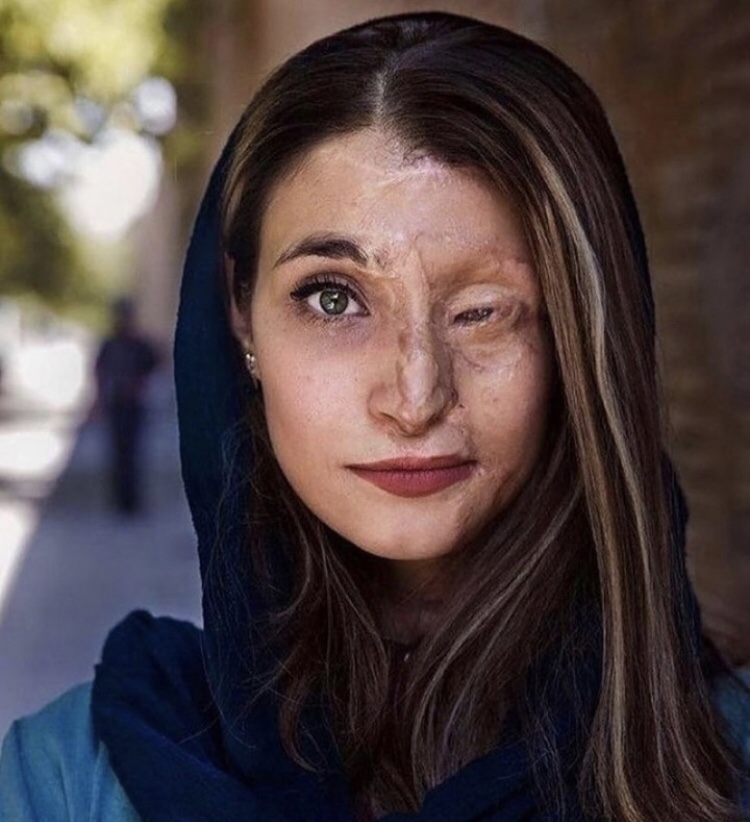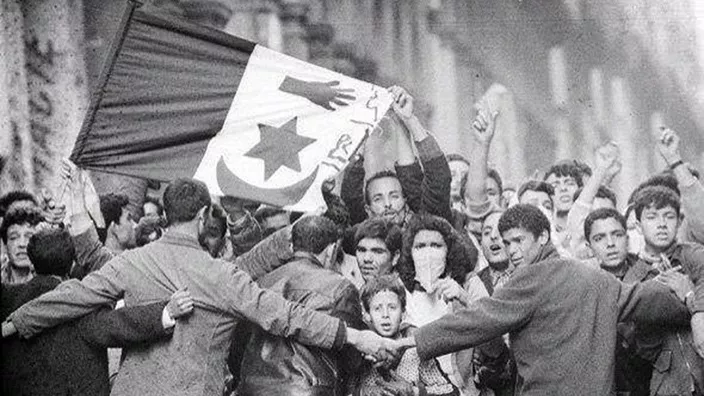
Marzieh Ebrahimi, Iranian figurehead
Look her straight in the eye. Yes, look at her. Her scarifications content the atrocity of the violence done to those who “dare” to live normally. Disfigured? No. A figure of bravery, rather. If Marzieh’s attackers thought they had dug her grave, they have in fact raised to the top a woman of great beauty that they will not have completely erased. Now a spokesperson for all the oppressed women in her country, Iran, Marzieh is fighting the battle of her life. A fight for freedom.
Her life changes in 2014 in Isfahan, Iran. While she is driving, the scene unfolds at breakneck speed. Her two detractors unexpectedly appeared on a motorbike and sprayed Marzieh Ebrahimi with acid. Cruel and cowardly, they immediately fled. Although the street where the attack took place is lined with CCTV cameras, the police do nothing. There is every reason to believe that the authorities are complicit, galvanised by these dubious-minded clerics.

Alienating women: but at what cost?
For Marzieh, a double way of the cross begins. Faced with this upheaval, she has to rebuild herself with a face that is half hers. In the face of injustice, she stands up against misogynistic Islamic preaching. Her case is sadly not isolated. In the same year, several victims were recorded, including Soheila Jorkesh in the city of Isfahan. Stemming the feminist revolution is the goal.

Witch-hunts against ‘ill-disguised’ women
In Iran, women are punished in this way. By disfiguring them, they are forced to obey the sexist basis of wearing the hijab ‘properly’. Hijab is not an obligation in the Qur’an, as a reminder. More seriously, the coronavirus is relegated to the background by Shiite clerics, including Abolghasem Yaghoubi, Khamenei’s representative in the northern province of Khorasan, in a retrograde speech dated 2 October 2020: “Do not let the coronavirus distract us from other viruses. The law enforcement agencies must make the lives of the ‘ill-veiled’ women, dangerous, because they are trying to make our religious community insecure.”

Virtual activism as the only solution
Social networks are then the strength of women whose lives have been shattered. Because this scourge must stop, Marzieh denounces these widespread practices to muzzle women’s freedom. She campaigns for a ban on the sale of acid on Instagram, internationalizing this crying battle of legitimacy. By putting her face up, she also exposes the face of an entire country where submission sadly has a female name. In Iran, the prison has no bars. They are forbidden to sing in public and on stage, to drive while poorly veiled or to refuse sexual relations to their husbands, the list of restrictions being non-exhaustive.
